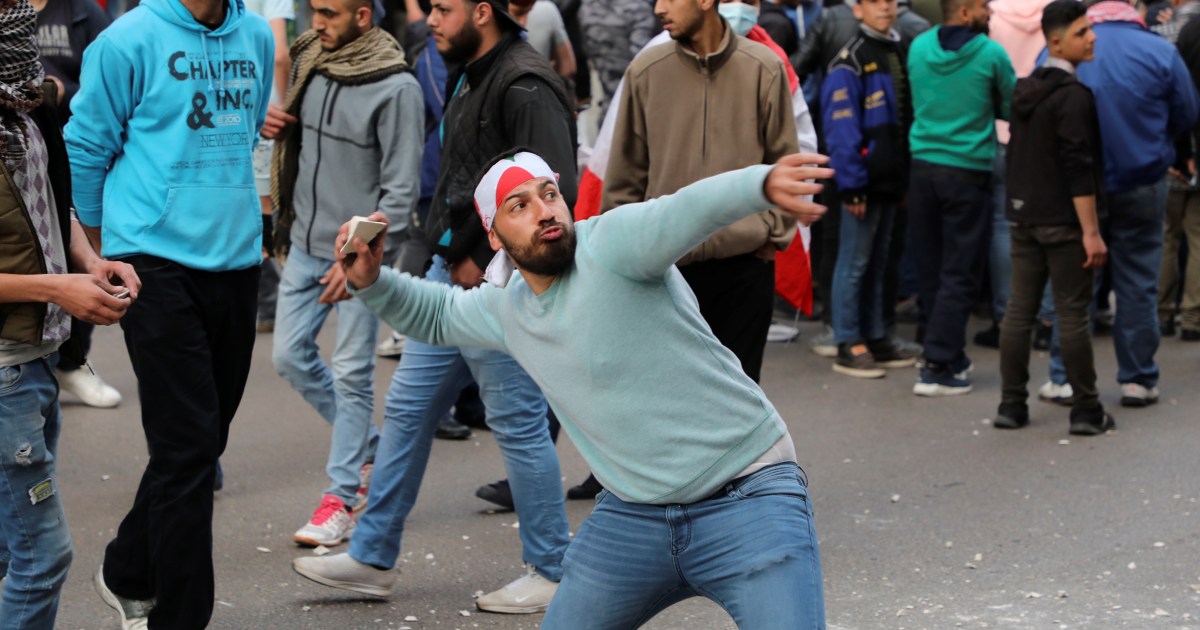The protests continued, condemning the deterioration of living conditions and the deterioration of the local currency exchange rate in Lebanon, and a number of protesters gathered in the center of the capital Beirut and set up tents in Martyrs' Square, while other protesters blocked the roads in the east, south and north of the country.
Witnesses said that hundreds of protesters left downtown Beirut and some went to the parliament building, trying to storm it, and they added that the security forces dispersed the demonstrators in the vicinity of Parliament using tear gas bombs after they managed to uproot an iron obstacle in front of its entrance.
The protesters stressed the need to "complete the revolution until all demands for change are met," and they called for "toppling the system of corruption in the existing authority."
They also called for "descending into the squares of the homeland to bring down the corrupt and reckless system of the people, for whichever side or sect they belong to, as hunger is at the gates, and the looting and allocation are still intense."
The local currency exchange rate deteriorated, as one dollar exceeded 12 thousand pounds in the parallel (black) market, compared to 1510 pounds officially.
Anger and protest
On the other hand, the Traffic Control Room of the Internal Security Forces, which is affiliated with the Ministry of Interior, reported, via Twitter, that protesters had closed roads in the Corniche al-Mazra'a, Kula, and stories west of Beirut, and others in Baalbek, in protest of the situation in the country.
Another group of demonstrators in the city of Naameh closed - according to eyewitnesses - the road leading to Beirut with obstacles and stones, in protest against the high prices and the deterioration of the living conditions.
Dozens of demonstrators also took to the streets in Tire, denouncing the bitter reality that the country is going through and the high exchange rate of the dollar against the pound, according to other eyewitnesses.
Lebanon is going through a political and economic crisis, the worst since the end of the civil war in 1990, amid the faltering formation of a new government, since the resignation of Hassan Diab's government on August 10.

